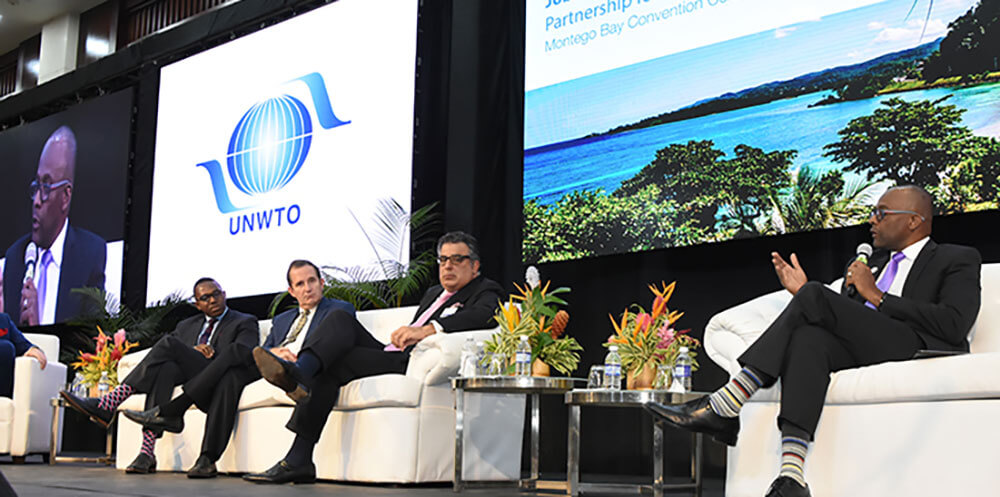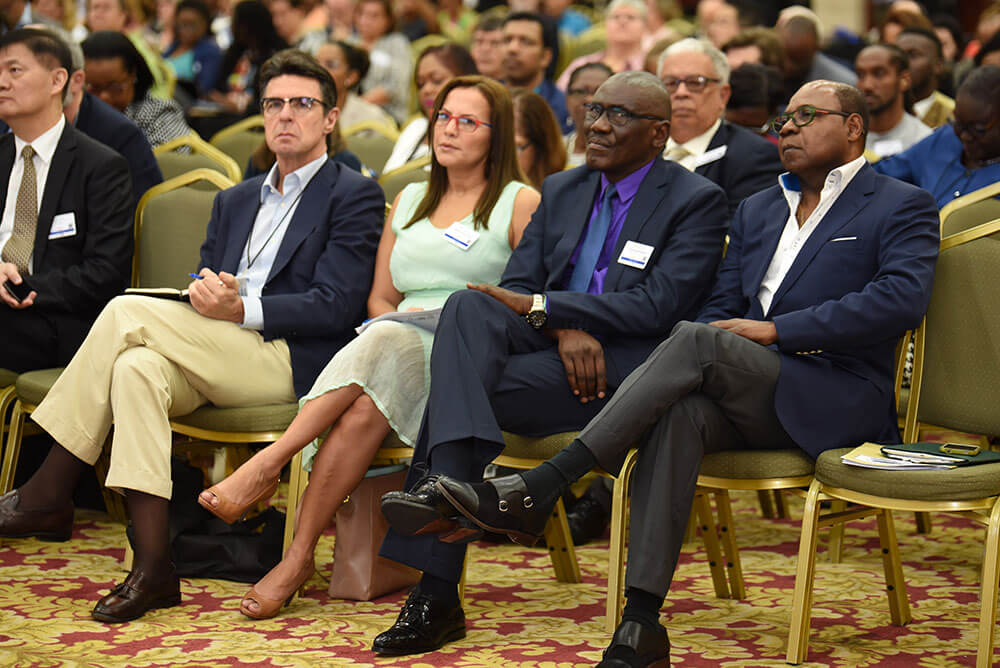
Donovan White (far right), then VP Corporate and Government Sales, C&W Business Jamaica currently Director of Tourism (Jamaica), addresses the audience during a panel discussion at the conference.
Last year, the United Nations declared 2017 the Year of Sustainable Tourism. The organization wanted to raise awareness of “the true dimensions of a sector which is often undervalued,” according to UN World Tourism Organization (UNWTO) Secretary-General Taleb Rifai. As part of the initiative, the group worked in collaboration with different governments and organizations to promote the importance of “well-designed and well-managed tourism,” which they say can lead to sustainable development, job creation, and an increase in trade.
For one of the official events, UNWTO partnered with the government of Jamaica, along with the World Bank Group and the Inter-American Development Bank, to host the Conference on Jobs and Inclusive Growth: Partnerships for Sustainable Tourism. More than 1,500 industry leaders came from all over the world to meet at the Montego Bay Convention Centre from Nov. 27-29. The event was dedicated to creating “an international road map” leading to “inclusive economic and social development” via the tourism industry.
“Jamaica has been leading the important topic of financing tourism and thus UNWTO was immediately ready to accept the proposal of [Jamaica Tourism] Minister [Edmund] Bartlett to host this event in Montego Bay,” an UNWTO representative told Convene. “Furthermore, the importance of tourism for the economies and the livelihoods of the communities made Jamaica a perfect host of this discussion.”
UNWTO worked with the Ministry of Tourism of Jamaica and the World Bank Group, in collaboration with international development firm Chemonics International, to hold the conference. The event’s intent was to “identify successful models and initiatives of public-private partnerships that will contribute to sustainable tourism development globally,” according to the organization’s site.
“It was convened to look specifically at the issues of financing for development,” UNWTO said. “In that regard, the partnership and participation of the World Bank, the Inter-American Development Bank, and the Organization of American States were critical.”
At the conference — which was the organization’s first event dedicated solely to finding financing for jobs and inclusion — the groups drafted the Declaration of Montego Bay, which summarizes “the need for more financing mechanisms for tourism,” according to UNWTO. “It also agreed on the creation of a Tourism Resilience Centre in the region to help destinations better prepare and manage crisis situations.”
The center will be located at the Mona Campus of the University of the West Indies, providing information and technical advice regarding climate-related crises. “It will also observe actions and activities of these global disruptive elements,” Minister Bartlett said, “so that we can be in a position to mitigate, manage, and recover very quickly after these disasters happen.”
UNWTO found Montego Bay to be the perfect place to host this inaugural event. “The combination of nature and business was perfect,” the organization said. “The convenience of having the hotels and the convention center at close distances, and the warmth of the people, made the conference remarkably successful.”

A section of the audience at the conference with Minister of Tourism (Jamaica) Edmund Bartlett (right).

